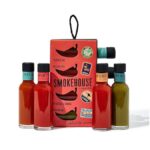Why Confidence Matters
Choosing to wear breast forms after surgery is a personal journey, and confidence can make all the difference in how you feel and present yourself in public. For many, the first step is recognizing that breast forms offer emotional and physical reassurance, helping restore balance and silhouette. Adapting to breast forms for breast cancer survivors allows individuals to reconnect with daily routines, face-to-face conversations, and social outings without feeling self-conscious. Embracing your appearance is a process, but every positive step builds greater comfort in your new normal. According to the National Cancer Institute, thousands of breast cancer survivors have credited breast prostheses with boosting confidence and improving quality of life. Research also shows that confidence impacts more than attitude—it can affect posture, body language, and how you engage with others in public or professional settings.
Selecting the Right Breast Forms
Confidence starts with comfort. Selecting breast forms that match your body shape, skin tone, and activity level plays a big role in feeling at ease outside the home. Today, options range from silicone to lightweight foam varieties, offering choices for everyday wear or special occasions. Consult a certified fitter to ensure you’re choosing not only the right size but also a shape that feels natural when you move, sit, or walk in public. Finding the right form can take some trial and error, and needs may evolve over time—don’t hesitate to revisit fittings as your journey progresses and your body changes.
Best Practices for Fit and Comfort
Wearing breast forms confidently in public requires a proper fit for both symmetry and security. The right mastectomy bra helps keep forms in place and provides a smooth silhouette under clothes. Before leaving home, check for any shifting or discomfort and make small adjustments as needed. Experts recommend bras with comfortable, wide straps and supportive pockets to hold forms discreetly. Regular care—washing with mild soap and storing forms in a molded box—ensures they remain comfortable and reliable for everyday use.
Choosing Supportive Clothing
What you wear can further boost your confidence. Fitted but not tight clothing, smooth fabrics, and patterns or layers help disguise any lines or edges from breast forms. Loose, baggy apparel can actually draw attention, while strategic layering, scarves, or jewelry can accentuate the positives and take focus off the chest area. Ultimately, the right clothes are those that make you feel empowered—so experiment with styles, colors, and textures until you find what works best for you.
Overcoming Self-Conscious Moments
Even the most confident people can have moments of doubt. The first few outings with breast forms may feel daunting, but it’s helpful to remind yourself that most people are focused on their own activities and rarely notice others’ insecurities. On days when anxiety spikes, grounding techniques—like deep breathing or repeating affirming statements—can help keep nerves at bay. According to Healthline’s breast prosthesis resource, many individuals find that building predictable routines—for example, always wearing a favorite scarf or bringing a backup top—gives them greater peace of mind in public.
Mental Strategies for Self-Confidence
Practicing self-compassion is vital. Focus on the journey you’ve overcome, not perceived flaws. Celebrate personal victories, whether having a pleasant conversation in public or wearing a new outfit for the first time. Mindfulness and visualization techniques can reinforce a positive self-image, and counseling or support groups provide a safe place to process new feelings or share small triumphs.
Where to Find Support and Resources
Support is everywhere—from cancer centers and prosthesis fitters to online communities dedicated to breast cancer survivors and their journeys. Participating in local or digital groups informs you about new products, fitting workshops, and tools for adjusting to everyday life with breast forms. Engaging with others, asking questions, and celebrating each other’s victories contributes to a lasting sense of belonging and confidence in public life.







